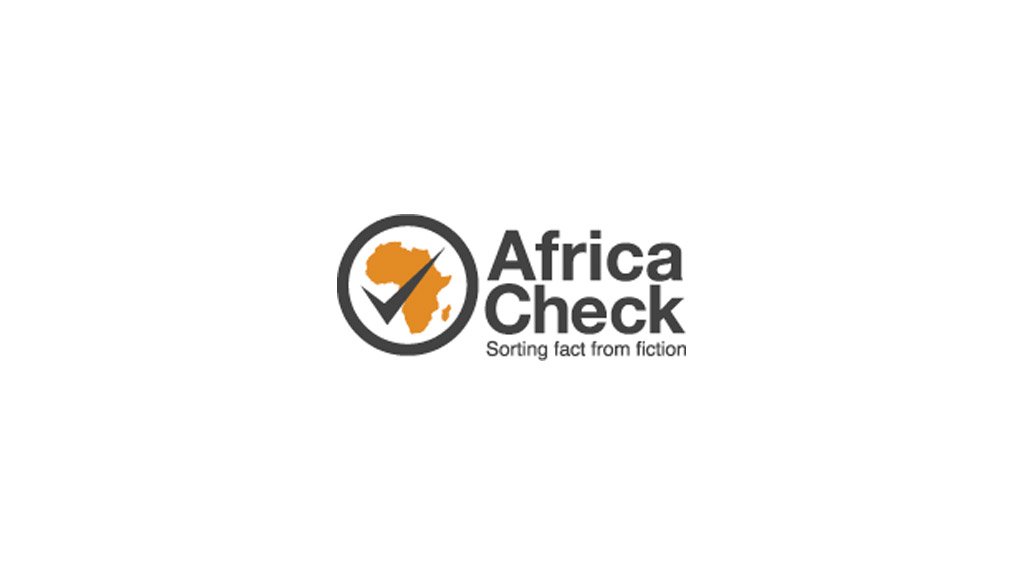Kenya will see a number of national campaigns and events in 2025, many of which are already causing controversy and muddying public debate.
These are accompanied by a great deal of disinformation and viral falsehoods, as is typical of polarising events.
We flag five topics to watch out for.
1. Presidential decree, poor communication and conspiracy theories will sully nationwide livestock vaccinations
In Kenya, vaccine hesitancy has taken a different – and interesting – form.
The country plans to start vaccinating cattle, sheep and goats across the country in January 2025. This is intended to attract better market prices for livestock products and meet international standards.
But president William Ruto’s announcement of this vaccination effort sparked a national furore, including absurd claims that the effort was really about injecting livestock with genetically modified vaccines.
Veteran opposition politician Kalonzo Musyoka called on Kenyan farmers to reject the vaccine, claiming that it was a “foreign agenda” to introduce “gene-modifying drugs” as part of a “deadly experiment”.
Other politicians have also opposed the vaccine.
In response, an exasperated Ruto called the claims “ridiculous” and “nonsense”. He defended the vaccination effort as a disease control measure and described opponents as “mad, unreasonable and possibly stupid”.
The Kenya Veterinary Association has called for the vaccination to be suspended to attract more public buy-in and tamp down misinformation surrounding the campaign.
Russia weighs in
To counter the conspiracy, the government said the vaccines were produced locally by the state-owned Kenya Veterinary Vaccines Production Institute.
But this clarification may have contributed to geopolitical crosswinds when the Russian embassy in Kenya claimed that the Kenyan vaccine agency was allowing the US government to “conduct unlicensed vaccine and drug trials” in Kenya.
The country’s controller of budget also threw a spanner in the works on 24 December, claiming that there was “no budget for vaccination”. But agriculture officials said the World Bank would pay for it.
So far, the signs are that the government has to do more to sell the vaccination campaign to livestock farmers because falsehoods about intentions, safety and efficacy have been known to fuel vaccine hesitancy and refusal.
Research also shows that vaccine disinformation needs to be tackled with more information and debunking of myths and conspiracies, and not with threats or by fiat.
2. The messy politics of the African Union chair election
Elections are typically magnets for disinformation. Kenyan opposition leader Raila Odinga is in the running to become the next chair of the African Union Commission. Elections are scheduled for February 2025.

The powerful commission is the administrative body of the African Union (AU), overseeing the day-to-day running of the 55-member bloc. It is based in Addis Ababa, Ethiopia.
But the upcoming polls are already attracting a barrage of falsehoods, such as a fake opinion poll showing Odinga in the lead, fabricated endorsements of rival candidates, and fake graphics depicting foreign presidents signalling how they will vote. There have also been posts on Tiktok falsely claiming Odinga has dropped out.
Moreover, a wave of disinformation preceded a much-publicised debate between the candidates.
Given the geopolitical interests at play within the AU, Odinga’s place in Kenya’s realpolitik, and the contest itself, it is likely that another surge of false information will arrive as the clock ticks towards the much-watched vote.
3. AI-generated images and videos as protest tools against government overreach
Days before Christmas 2024, reports emerged that social media users in Kenya were being abducted for what they had posted on X, including images generated with artificial intelligence (AI) tools, showing the likeness of the Kenyan president in a coffin.
Kenyans have used social media to protest against unpopular government policies. They are increasingly using generative AI tools such as X’s Grok to create images and cartoon-like silhouettes to criticise the government.
While some online activists are using generative AI tools to campaign for good governance, the tools have also been used for political smear campaigns. Similar tactics were used by government sympathisers to discredit the country’s June 2024 anti-tax protests.
As the tools become better and cheaper, digital activists in Kenya are using them more to produce content – some of it true, some of it false – that pollutes public debate.
This is why AI literacy is becoming key in the information resilience toolbox.
4. Scams – fraudulent giveaways, fake jobs and bogus ads likely to continue
An unrelenting cost-of-living crisis, rampant unemployment and a government-run social health insurance scheme that has yet to inspire public confidence are among the pressing issues that Kenyans want addressed.
As desperation grows, so does the opportunity for fraudsters to step up their scams, offering dubious cures for the sick and phantom jobs for the unemployed, often at a fee. They also pretend to offer quick loans to the cash-strapped and pose as public figures or organisations promising free gifts in sophisticated phishing scams.
These schemes will persist unrestrained in 2025 because they fill a void – people want their problems solved quickly – and partly because of greed.
And Africa Check will continue to publish guides on how to spot scams and unmask false giveaways, in the hope of reducing the number of victims.
5. The impending clean-up of corruption in the Kenyan judiciary
Kenyan lawyers have stepped up a campaign for judicial reform, calling in particular for investigations to rid the judiciary of corrupt judges and officers.
While the allegations of corruption are not new, the calls for the resignation of chief justice Martha Koome are mounting as allegations of bribery in the judiciary swirl.
For a campaign largely conducted on social media, the potential for disinformation to tarnish the names of honest judges is high.
Kenyans should be prepared for unverifiable allegations of bribery or judicial misconduct. It is not far-fetched to predict that aggrieved politicians and other litigants will also use the discourse to seek revenge.
This report was written by Africa Check., a non-partisan fact-checking organisation. View the original piece on their website.











